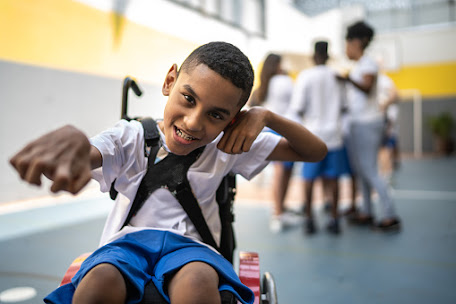Health is a lifeline for people with disabilities
Nearly 8 million Mexicans, seven in 100, live with disabilities, according to the latest household survey. The type of disability that affects around 60% of this population is associated with reduced mobility. Limitations of hearing and sight follow; 32% of people with disabilities have difficulty seeing even with glasses and 16% have difficulty hearing even with hearing aids technologyifytechnologyify.
The disability questions in this Mexican survey are in line with Washington Group's guidelines for identifying people with disabilities in this location. Although this kit does not fully cover the disability situation, it can identify most cases and does not focus on physical or mental disabilities - such as limb missing or Alzheimer's - but rather on performance difficulties. some activities. In addition to walking, moving, climbing or dismounting, seeing (also with glasses) and hearing (also with hearing aids), getting dressed, bathing, eating and learning simple things. In the case of Mexico, the study also tries to determine whether people have “intellectual disabilities” worldbeautytipsworldbeautytips.
21 countries have implemented questionnaires based on the Washington Group Directory. This is an significant step as it enables us to use census and survey information to understand the state of disability in the area and to develop innovative, effective and high quality solutions. American Development Bank's new publication “Innovation You Didn't Know” examines initiatives ranging from 3D prosthetics to “apps” that make communication easier for people with hearing impairments technologyford. (Download the publication here).

Without access to
health, we don't solve anything.
With this approach to treating disabilities, it is clear that access to technical devices and assistance can improve the excellence of life for people with disabilities by making it easier to carry out basic activities. Inaccessibility is perhaps one of the factors contributing to greater disability among the lowest income groups, who also have the most incomplete access to quality public health services. In fact, the incidence of disability in Mexico among people living in extreme poverty is almost twice that of the non-poor and vulnerable (9% versus 5%). Globally, disabilities are more common in developing countries technologyies .
In addition to the lack of access to technical support and qualified health care, the context in which populace with disabilities find themselves is also important. The most comprehensive and widely accepted definition of disability developed by the World Health Organization explains that disability is the consequence of a dynamic interaction between physical and functional impairments, limitations in doing activities and barriers to participation (read more here). The Washington Group's short questionnaire agrees with this definition, but does not provide an analysis of the involvement of people with disabilities in basic life tasks, including education, work, social and civic life.
Some people with disabilities have had outstanding professional, athletic, artistic or political careers. Astrophysicist Stephen Hawking is one of them. While much of his success depends on his talent, it would have been impossible without access to quality health services and innovation, which resulted in his distinctive speech synthesizer that he not only communicates with, but communicates with. it became part of his personality. Thanks to these components, plus a professional team of personal assistants and a system that adapts to your home and work, Hawking has become a living legend. “But I know that I'm very lucky,” he says in the foreword to the World Disability Report.


